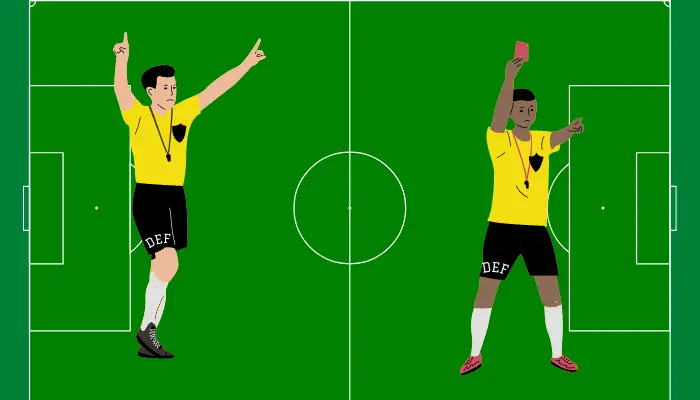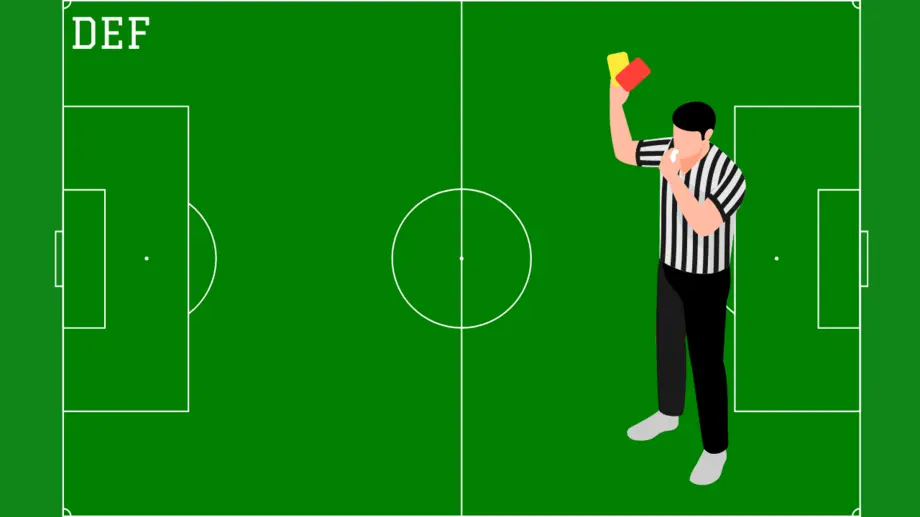What is the Law of Advantage in Football?
The Law of Advantage in Football occurs when the referee allows play to continue when an infraction is committed, and the team that suffered the infraction will benefit from the advantage on the play, and must call the infraction or foul if the expected advantage is not realized at that moment or within a few seconds.
When should Advantage be given in Football?
The referee may apply the Advantage Rule whenever an infraction or a foul is committed, but must take into consideration the following circumstances in deciding whether to apply the Advantage Rule or stop play:
- The seriousness of the infraction: if the infraction entails a sending-off, the referee must stop the game and send the player off, unless there is a subsequent clear opportunity to score a goal;
- The place where the infraction was committed: the closer the infraction is to the opponent’s goal, the more the advantage can be gained;
- The immediate opportunity for a dangerous attack on the opposing goal;
- The environment in which the game takes place.

Card Advantage and Punishment
If the referee applies an advantage after a foul punishable by Yellow Card-YC or ejection-RC, the warning or ejection must be applied when the ball is out of play.
However, if the offence prevented a clear goal-scoring opportunity, the player should be yellow carded for unsporting conduct. If the offence was for interfering with or preventing a promising attack, the player should not be yellow carded.
When should Advantage not be given in Football?
Advantage should not be applied in situations of serious rough play, violent conduct, or in the case of a second yellow card, unless it is a clear goal-scoring opportunity.
In this case, the referee must expel the player at the first interruption of play, unless the player throws the ball, challenges or interferes with an opponent, in which case the referee must stop play, expel the player and restart the game with an indirect free kick against the team of the expelled player, unless the player has committed a more serious infraction.
Conheça Nossos Materiais
If a defender begins to hold (grab) an attacker outside the penalty area and continues the action to the inside of the penalty area, the referee must award a penalty kick.
If during the execution of a free kick an opposing player is closer to the ball than the regulation distance, the free kick must be retaken unless an advantage can be applied.
If the referee gives an advantage or allows a quick free kick, which interferes with or prevents a promising attack, the Yellow Card should not be applied.
Insufficient Players and Advantage
If a team is left with fewer than seven players, because one or more players have deliberately left the field of play, the referee is not obliged to stop the game immediately, because he can apply the advantage rule, but the game cannot be restarted, after the ball goes out of play, if the team continues without the minimum number of seven players.

 Material de Educação Física
Material de Educação Física